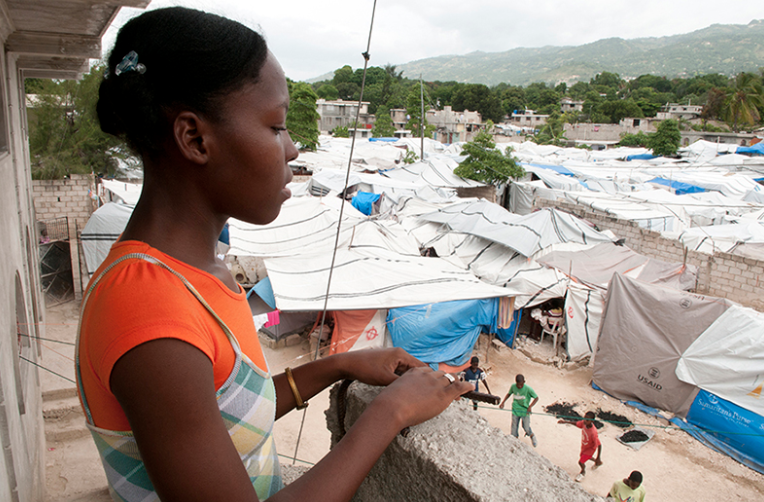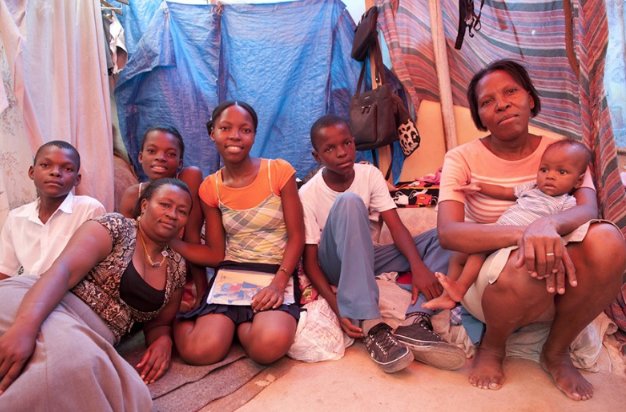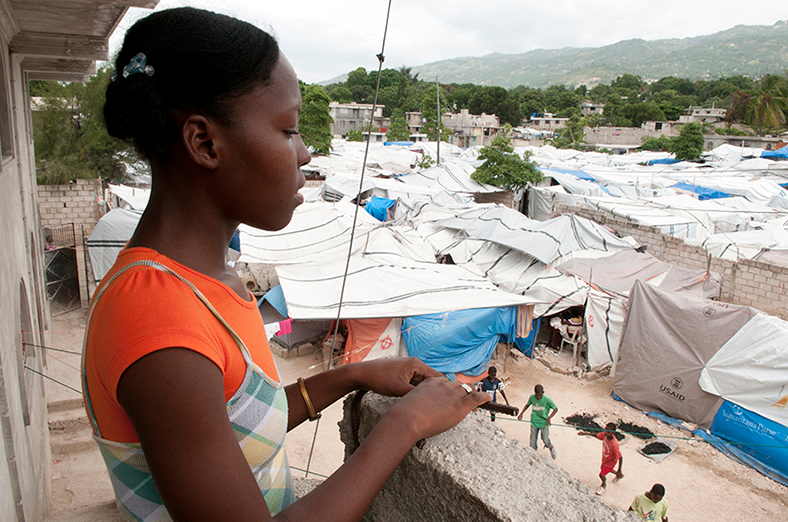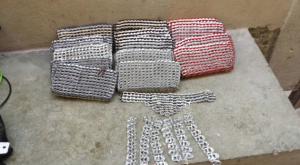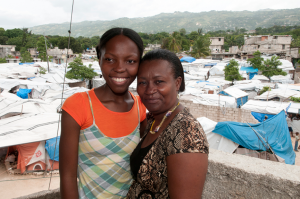By: Ryan Sawatzky
Originally Posted: January 2012
January 12, 2010, an earthquake ripped through the southwest end of Haiti, leaving thousands dead, and millions injured and homeless. The capital city of Port-au-Prince, with a population of 2 million living within 14 square miles, suffered the brunt of this quakes catastrophic effects. Over two hundred years since Haiti’s independence, foreign exploitation of her citizens created a poverty that has wreaked havoc on the majority of the population. It was this chronic poverty and over population in Haiti’s Capital that led to the devastating effects of this quake.
Those millions, who were left homeless, sought large open spaces to form makeshift camps. These camps are cobbled together, using any materials on hand. Bed sheets, old tarps and scrap metal fashion homes that are so close together, people are virtually living on top of one another. These camps are stiflingly hot, increasingly dangerous for women and children, and have poor sanitation, with cholera spreading like wildfire.
All of these camps residents come from the poorer sect of society. Even before the earthquake, these poor majorities had little to no hope for employment or education, and now, have little hope to leave this deplorable living situation. Sauvlyne Louis Jean is a young woman whom I met in the summer of 2011; a student attending SOPUDEP School, a Haitian community school our foundation supports. She is a resident of one of these camps and was kind enough to let us see her world.
Like the rest of the other estimated 10,000 people that live in her camp, Sauvlyne’s home is made from tattered tarps and sheets, with nothing but old blankets to protect them from the ground on which they sleep. She lives here with her mother, eight siblings and a few extended family members. When it rains, it leaks terribly, and when it’s sunny, it virtually unbearable to be inside. But despite her families’ poverty and current living situation, she is a positive and strong young woman.
In part, her pride and strength can be attributed to SOPUDEP School. Sauvlyne’s mother has never had the means to send Sauvlyne and her other siblings to school, but because of SOPUDEP, Sauvlyne is a recent high school graduate at the top of her class and is now attending college.
Education in Haiti is not just acquiring knowledge, but is a critical part of the process to end the cycle of poverty. For Sauvlyne, now not only does she have a chance for a future that doesn’t include living in chronic poverty, but also a fighting chance to make her way out of this camp and a life for her own. Sauvlyne spoke with the highest regard to what SOPUDEP School and its founder, Rea Dol has provided for her, “If it wasn’t for Madam Dol, no one would care for us”.
It is because of SOPUDEP’s international support, that they are able to better provide accessible education to these children. And it is because of the generous donations from SOPUDEP’s supporters, that as of September 2011, Sauvelyne is expanding her education and her chances of attaining a career by attending college.
And what is Sauvlyne studying? Education science. She wants to become a teacher and work for SOPUDEP, or a school like it. She wants to give back to her community what she was given. Hope!
